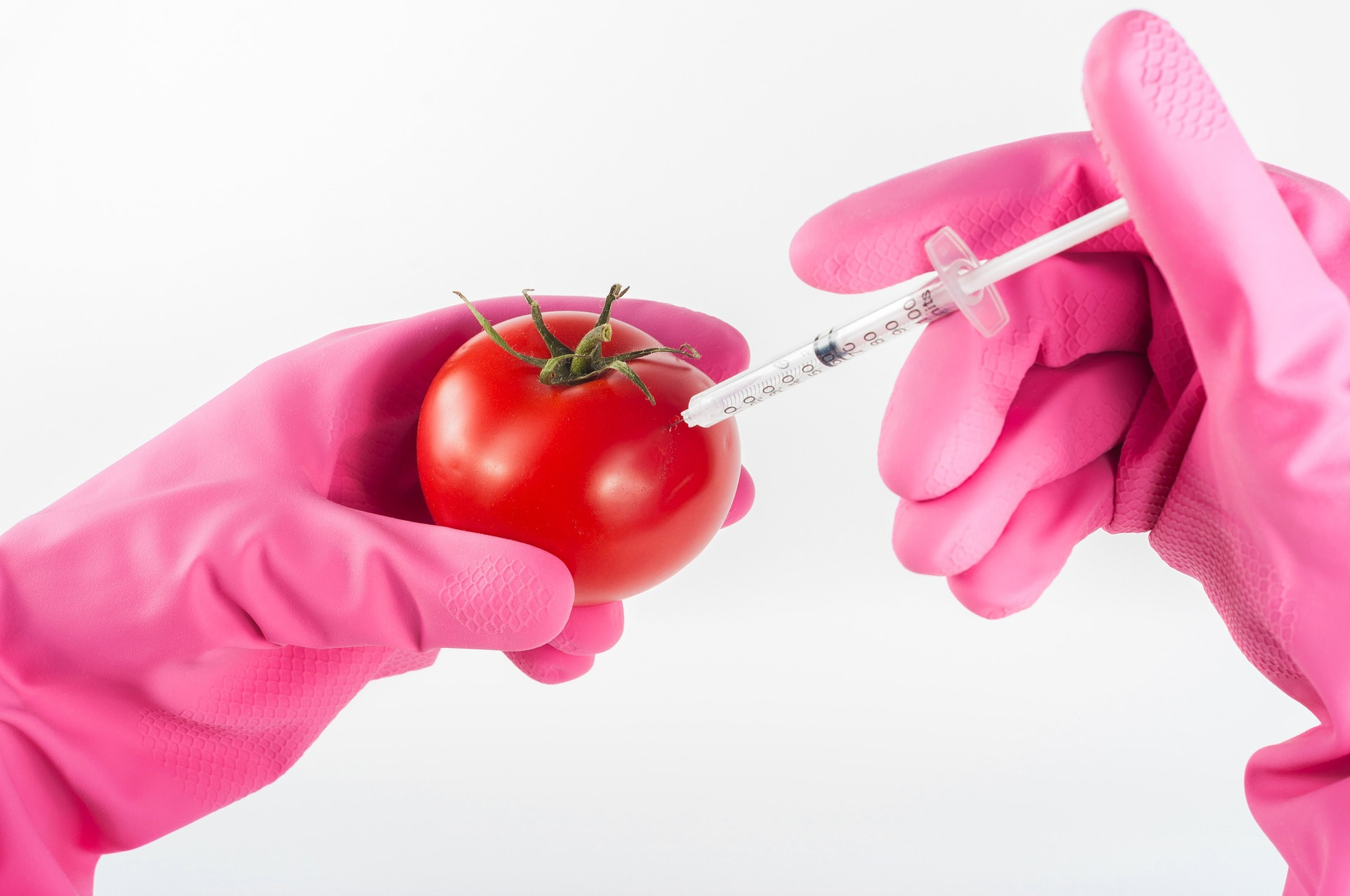A GMO is a genetically modified organism. GMOs can be a microorganism, living plant or animal that has been modified using biotechnology.
Using biotechnology, developers will alter the key characteristics of a living organism. According to the Non-GMO Project, “Biotechnology includes techniques such as using synthetic genetic sequences to change the organism’s genetic material (i.e., DNA or RNA), or forcing the combination of very unrelated organisms that would not normally reproduce in nature. When biotechnology is applied to a living organism, the result is a GMO. While GMOs are used across many industries, the Non-GMO Project’s areas of concern are food, personal care products and animal feed.”
Which Foods Contain GMOs?
Take a stroll down the aisles in a grocery store and you will find that most of the processed and pre-packaged food options likely contain ingredients drawn from canola, soy and corn. These crops, grown in North America, are widely known to be genetically modified.
As stated by the non-GMO project; livestock, apiculture, and aquaculture products are at high risk to contain GMOs because genetically engineered ingredients are common in their feed.” This means your everyday products such as milk, meat, eggs, seafood and honey, and seafood could also contain GMOs.
You may even find processed crop derivatives that contain GMOs in some of your foods ingredients list. Examples include: yeast products, hydrolyzed vegetable protein, flavors, fats, and more.
The Health Risks of Genetically Modified Foods
For more information on how GMOs can negatively impact your health, we refer to The National Library of Medicine.
As genetically modified (GM) foods are starting to intrude in our diet, concerns have been expressed regarding GM food safety. These concerns as well as the limitations of the procedures followed in the evaluation of their safety are presented. Animal toxicity studies with certain GM foods have shown that they may toxically affect several organs and systems. The review of these studies should not be conducted separately for each GM food, but according to the effects exerted on certain organs it may help us create a better picture of the possible health effects on human beings. The results of most studies with GM foods indicate that they may cause some common toxic effects such as hepatic, pancreatic, renal, or reproductive effects and may alter the hematological, biochemical, and immunologic parameters. However, many years of research with animals and clinical trials are required for this assessment. The use of recombinant GH (growth hormone) or its expression in animals should be re-examined since it has been shown that it increases IGF-1 which may promote cancer.
While no clinical studies have been conducted on humans concerning the intake of GMO foods, there have been several conducted on animals. These animal based studies have indicated some very serious health risks, including but not limited to:
- Immune System Decline
- Infertility
- Gastrointestinal Issues
- And more…
How do I Avoid Consuming GMO Foods?
While labeling foods as containing (or not containing) GMOs is not yet a requirement of food manufacturers, there are steps you can take to ensure you are avoiding foods containing them.
- Start off by looking for foods that are accompanied by a “non-GMO” or “GMO Free” label.
- Purchase foods that are labeled 100% organic or grass-fed.
- Avoid purchasing processed or prepackaged foods
- Instead, opt for purchasing whole foods and preparing items at home.
The U.S. still has a long way to go when it comes to the regulation of genetically modified foods. In the meantime, we can do our best at taking the necessary steps to avoid foods containing these ingredients.
Food more information regarding GMOs, please visit:
The Non-GMO Project
The National Library of Medicine


